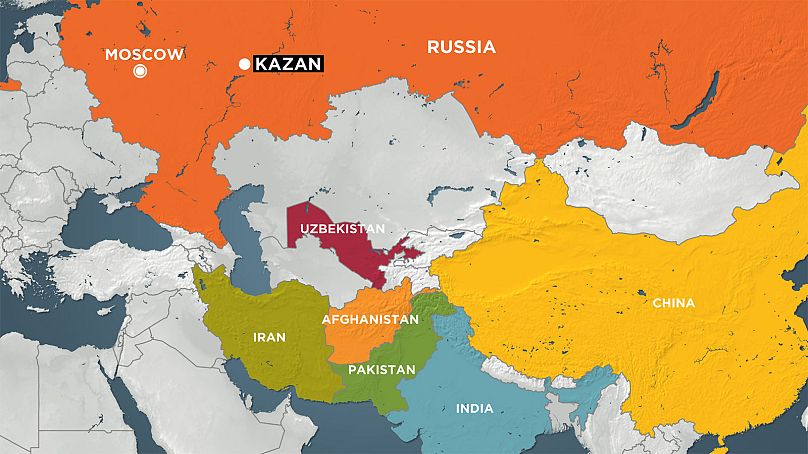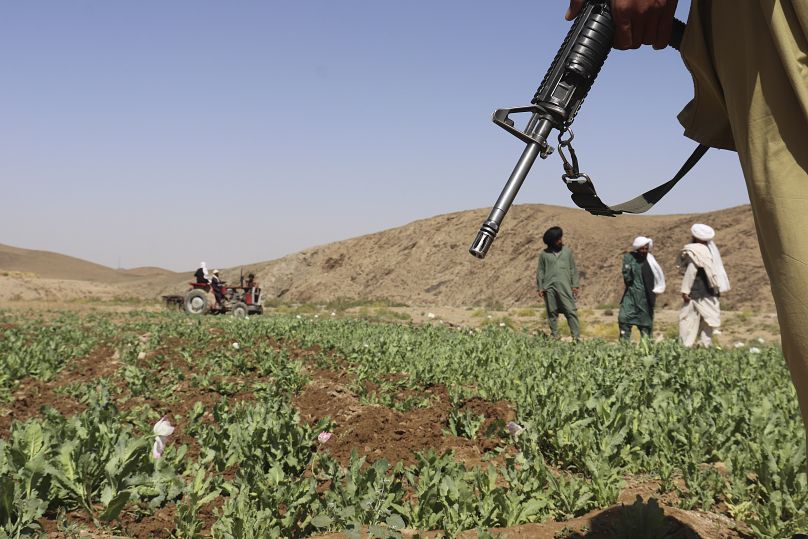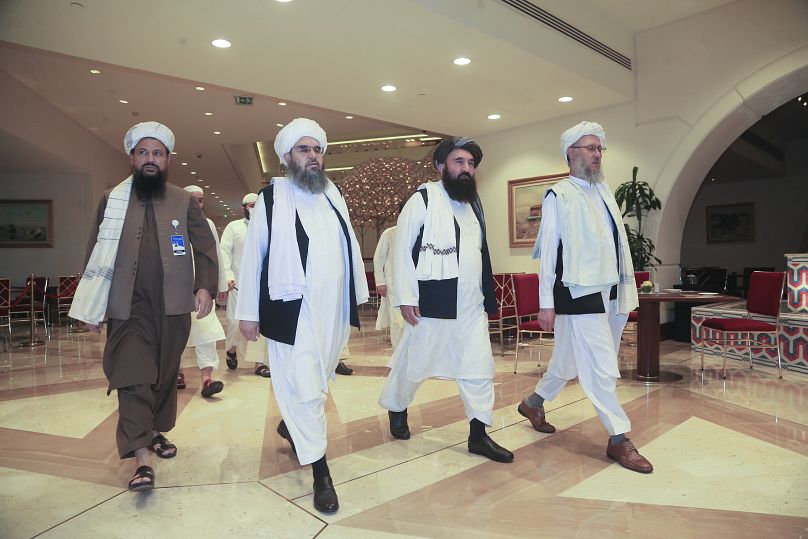Russia is hosting a Taliban delegation for talks on issues of ‘counter-terrorism’ and ‘narcotics’ on Friday, 29 September. China, Pakistan and Uzbekistan are among the powers heading to meet representatives in Kazan, south west Russia.
This is the fifth round of the so-called ‘Moscow Format Talks’- which first took place in 2017.
 ADVERTISEMENT
ADVERTISEMENT
 ADVERTISEMENT
ADVERTISEMENT
But what really lies behind these meetings? And should the West be watching - or is this simply a symbolic show of power play?
Is Russia filling a gap left by the West?
“Afghanistan's neighbours recognise the Taliban will be in power for the foreseeable future. They’re not going to fall. And therefore they believe that it is necessary to deal with them”, Anatol Lieven, Director of the Eurasia Program at the Quincy Institute for Responsible Statecraft, told Euronews.
Afghanistan was pushed into economic collapse following the Taliban’s capture of Kabul in August, 2021. International assistance has since been severely cut back and the country's central bank isolated from the international banking system.
“It desperately needs grain, energy and financial support. And since it isn't going to get it from the West, it makes great sense for the Taliban to talk to anybody who may”, Lieven added.
Item one on the agenda: ‘counter-terrorism’
The rising threat of the so-called Islamic State group and other insurgent groups in Afghanistan is a cause for concern for regional powers.
“The Taliban has not stopped insurgent groups who might want to cross the Amu Darya river and go into Central Asia or fight in China”, David Loyn, former BBC Afghanistan Correspondent and Senior Fellow at King’s College London, told Euronews.
For China, Islamic extremist groups who seek to expand their influence - as well as support the persecuted Uyghur population - are a threat.
Item two on the agenda: drugs
Although the Taliban has sought to crack down on Afghanistan’s drug trade since it reclaimed control two years ago, its success has been limited.
According to UNODC findings, the cultivation of opium poppies in Afghanistan has increased by nearly a third in comparison with 2022.
Russia remains one of the key destinations for these drugs.
“I think the Taliban would seriously crack down on production if they were offered diplomatic recognition and substantial aid. But Russia is not in a position to give that aid. And China has not had much interest so far in doing so”, Anatol Lieven told Euronews.
A weaker Russia
Since its full-scale invasion of Ukraine last February, Russia's bargaining leverage has been weakened by international sanctions.
“Russia would probably like to simply pay off the Taliban to suppress the heroin trade and to help the Taliban crush the ISIS rebellion within Afghanistan. But it is not financially in a place to do that today”, Lieven stated.
In September, 2022, Russia struck a deal with Afghanistan to supply it with gasoline, diesel, gas and wheat. This was the first major economic accord leveraged by the Taliban since its return to power. However, Russia did not fulfil these commitments - in part due to sanctions.
Lack of formal recognition
Since the Taliban government reclaimed power, it has not been granted formal recognition by the international community.
In August this year, US officials held talks with Taliban representatives in Doha. The meeting focused on returning assets to the Afghan central bank. US representatives also urged the Taliban to address human rights violations - namely the ban on women's education.
"The regional countries attending this round of talks in Kazan will most likely push for further progress regarding the Taliban’s policy on women’s education - and the Taliban will push back", Ibraheem Bahiss, analyst for Crisis Group's Asia Program, told Euronews.
More informal moves have been taken by Russia - such as its decision to accredit an official Taliban diplomat in Moscow.
Will these talks yield a significant outcome?
Opinion is divided regarding what these talks will achieve.
“There is no substance of any value to these talks that’s going to change the equation in Afghanistan, Russia, China and Pakistan”, Loyn said.
There is also scepticism regarding the calibre of representatives who will be sent from the Kabul administration.
"The real thinking in the Taliban goes on in Kandahar, in the south, under the supreme leader Hibatullah Akhundzada. The ideologues who insist that girls' schools remain closed and that almost all employment opportunities are closed to women, won't be in the room", added Loyn.
However, others believe that the talks hold more clout.
"I wouldn't dismiss them as purely symbolic. There may be an element of this but as these meetings continue to happen there is a genuine chance that things will be altered", Bahiss told Euronews.













